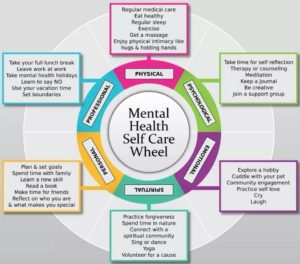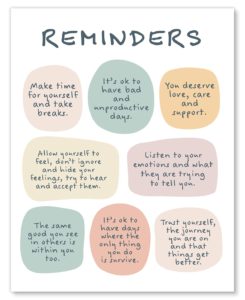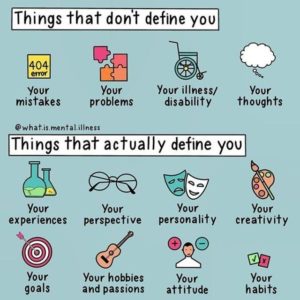HEALTH CARE AT CAMP
Your child(ren)’s health and safety is our top priority while they are at camp. It is critical that we have accurate information in order to best support them throughout their stay at camp. Please review this section carefully and contact our St. Louis office with any questions you might have before camp begins.
In 2019, Sherwood Forest built a brand new health lodge, the Comfort Lodge, to better serve the health needs of our campers. The Comfort Lodge is staffed by two registered nurses while child(ren) are at camp in the summer. During some sessions, a student nurse, and/or EMT may also be in residence. Our health care staff follows health care protocols that have been approved by a licensed physician. When necessary, our Camp Nurse consults with a licensed physician.
The nearest hospital is in Arcadia Valley, about 30 minutes from camp. Insect bites, headaches, minor poison ivy, upset stomachs, cuts and scrapes, etc., are considered routine medical care. It is our policy to contact parents only if a child(ren) experiences illness or injury requiring more than routine medical care. Please remember that your child(ren) is our first concern. First, we will seek the necessary treatment; then, we will follow-up with you. Please feel free to contact the Camp Director or Camp Nurse to ask any questions about your child(ren)’s healthcare. Please be sure you have provided accurate contact information and two additional emergency contacts who will be available while your child(ren) is at camp.
CAMPER HEALTH FORMS
Health history information must be up-to-date and submitted to the camp office with your child(ren)’s application, and may be updated prior to your child(ren) coming to camp. Campers have a mandatory health screening at the beginning of the session and/or prior to getting on the bus which is performed by our nursing team.
Please carefully and completely answer each question on the Health History Form. The form is not complete without a copy of current immunization records or immunization dates written on the health form and a copy of your child(ren)’s health insurance card, if applicable. Please write your child(ren)’s name and birth date on the copy of their health insurance card.
HEALTHFORMS – Link to parent resource page
https://www.sherwoodforeststl.org/parents/parent-resources/
Reynolds County Health Department Consent Forms
- Complete the consent testing forms (pages 1 & 2), as Reynolds County HD will be coming to camp to rapid and PCR test all campers & staff
- If your camper(s) are old enough and your family would like to have them vaccinated (not required for campers). You will need to complete pages 3 & 4, and the Reynolds County HD will come out and vaccinate your camper(s) with the Johnson and Johnson vaccine.
PACKING LIST- Link to parent resource page
https://www.sherwoodforeststl.org/parents/parent-resources/
CAMPER CARE TEAM AT SHERWOOD FOREST
Camper Care is relatively new but one of our biggest and most vital priorities. The Camper Care team is comprised a Wellness Health Specialist (who leads the team) as well as 3-4 Youth Advocates; who are completing their practicum in Social Work, Counseling, Psychology, and or those pursing art/recreation and music therapies.
This team works directly with all of our staff members, to meet the behavioral, mental, emotional and social health (M.E.S.H) needs of campers through a variety of ways one-off conversations, frequent check-ins, or M.E.S.H support plans.
In order to provide a safe, healthy, and fun camp experience, we believe it is important to understand the behavioral, emotional, and mental health needs of your camper. If your child(ren) has been diagnosed with any behavioral or mental health conditions, please disclose this information on their Health History Form and Application. A diagnosis does not automatically disqualify your child(ren) from attending camp. We have had many campers with diagnosed conditions such as ADD/ADHD, Oppositional Defiance Disorder, Reactive Attachment Disorder, and mild Autism, to name a few. We have also had campers with adverse childhood experiences and histories of trauma. Each child’s experience of their condition, diagnosis, or situation is different and it is important that we get to know your child(ren) and how best to support them throughout their time at camp.
Prior to camp starting, a member of our staff may call you to discuss any behavioral or mental health needs noted on your child(ren)’s Application or Health History Form. In some cases, we will complete an Individual Camper Plan that is designed to provide more specific information for supporting your child(ren) while at camp.
Although camp is a fun and exciting place for campers, changes in routine and environment can cause some behavioral and mental health concerns to worsen or become more prevalent. Do not be surprised if we call you with reports of a behavior that is not common at home or that methods of handling a behavior are not as successful at camp. Our goal will always be to work with you and your child(ren) to establish management techniques that help your child(ren) be successful at camp.
Some strategies that work at home, may not work at camp. Campers should not feel bad or be discouraged if they have new or additional challenges while at camp. However, they must be willing to work with their Group Leaders and/or our Wellness Health team to establish new strategies that are better suited for camp.
Communicating Your Child’s Needs with Camp
In order to provide a safe, healthy, and fun camp experience, we believe it is important to understand the behavioral, emotional, and mental health needs of your camper. If your child(ren) has been diagnosed with any behavioral or mental health conditions, please disclose this information on their Health History Form and Application. A diagnosis does not automatically disqualify your child(ren) from attending camp. We have had many campers with diagnosed conditions such as ADD/ADHD, Oppositional Defiance Disorder, Reactive Attachment Disorder, and mild Autism, to name a few. We have also had campers with adverse childhood experiences and histories of trauma. Each child’s experience of their condition, diagnosis, or situation is different and it is important that we get to know your child(ren) and how best to support them throughout their time at camp.
Prior to camp starting, a member of our staff may call you to discuss any behavioral or mental health needs noted on your child(ren)’s Application or Health History Form. In some cases, we will complete an Individual Camper Plan that is designed to provide more specific information for supporting your child(ren) while at camp.
Although camp is a fun and exciting place for campers, changes in routine and environment can cause some behavioral and mental health concerns to worsen or become more prevalent. Do not be surprised if we call you with reports of a behavior that is not common at home or that methods of handling a behavior are not as successful at camp. Our goal will always be to work with you and your child(ren) to establish management techniques that help your child(ren) be successful at camp.
If your child(ren) has diagnosed or undiagnosed behavioral, emotional, or mental health challenges, please talk with them about how camp may impact their management techniques and coping strategies. Some strategies that work at home, may not work at camp. Campers should not feel bad or be discouraged if they have new or additional challenges while at camp. However, they must be willing to work with their Group Leaders and/or our Behavioral Health team to establish new strategies that are better suited for camp.
Please keep in mind that in some cases Sherwood Forest is not the right match for your camper. In this situation, we will do our best to recommend some alternative services, youth programs, or camps that are able to better meet the needs of your camper.
If you have any questions or concerns about managing your child(ren)’s behavioral, emotional, or mental health needs at camp, please contact the Camp Director, Alexis Newsome, at alexisn@sherwoodforeststl.org.
Campers & Homesickness
We are so excited to have your camper(s) with us this summer. We believe summer camp is and can be such a fun and vital experience. When a child experiences time away from their parent/guardian at camp, they have a sense of independence. This independent time is important in helping children develop a sense of identity. Camp will help them transition to independence as they explore the world in a new and exciting way. It teaches team work, resiliency, and a place to develop lifelong skills and provides fun screen-free activities.
We hope that your child will love their time at Sherwood Forest. But, we also want to do our best to help you and your child have a successful summer. In order to help prepare you for the summer, we are including some information that might be helpful to you and your child!
Homesickness is very common, and it is important to prepare early to help your child adjust to life at camp. This summer, millions of children will get their first taste of independence at a summer resident camp. For many, it will also be their first experience with homesickness. But parents don’t have to feel helpless when homesickness strikes. The prescription for camper homesickness is a simple solution of preparation and patience. Encourage your child’s independence throughout the year. Practice separations, such as sleepovers at a friend’s house, can simulate the camp environment.
Tips for Dealing with Homesickness
- Discuss what camp will be like before your child leaves. Consider role-playing anticipated situations, such as using a flashlight to find the bathroom.
- Send a note or care package ahead of time to arrive the first day of camp. Acknowledge, in a positive way, that you will miss your child. For example, you can say “I am going to miss you, but I know that you will have a good time at camp.”
- Don’t bribe. Linking a successful stay at camp to a material object sends the wrong message. The reward should be your child’s new found confidence and independence.
- Pack a personal item from home, such as a stuffed animal or a picture.
- When a “rescue call or letter” comes from the child, offer calm reassurance and put the time frame into perspective. Avoid the temptation to take the child home early.
- Talk candidly with the camp director to obtain his/her perspective on your child’s adjustment.
- Don’t feel guilty about encouraging your child to stay at camp. For many children, camp is a first step toward independence and plays an important role in their growth and development.
Dr. Chris Thurber and American Camp Association
(ACA 2019)
M.E.S.H. – Mental Emotional Social Health
M.E.S.H is an acronym for mental, emotional and social health. Sherwood Forest is committed to ensuring our campers feel supported, heard and seen on all of these levels. We believe working to address all levels of MESH will improve the camp experience for every camper. There are several ways Sherwood is continually working at this; one is by ensuring our all of our staff are adequately trained, in youth mental health first, trauma informed care, knowing the 8 behavior intelligences, acknowledging emotions amongst peers, and active listening to name a few. Another very direct way campers feel MESH supports at Sherwood is by us having what is called Camper Care. In Camper Care we have a Behavioral Health Specialist and 3-4 Youth Advocates, who are students completing their practicums in social work, psychology, counseling, or another MESH related field. Their job at camp is to utilize strengths-based counseling with youth around issues such as homesickness, peer conflict, family issues, and mental health issues. Anticipate and mitigate situations of difficult youth behavior. Provide ongoing guidance and coaching to staff on how to appropriately respond to youth needs and behaviors. These are just two intentional ways Sherwood Forest continually designs our program. We want to help our campers have transferable skills like building resiliency, positive self-esteem, and self-confidence at camp to their home environments.


